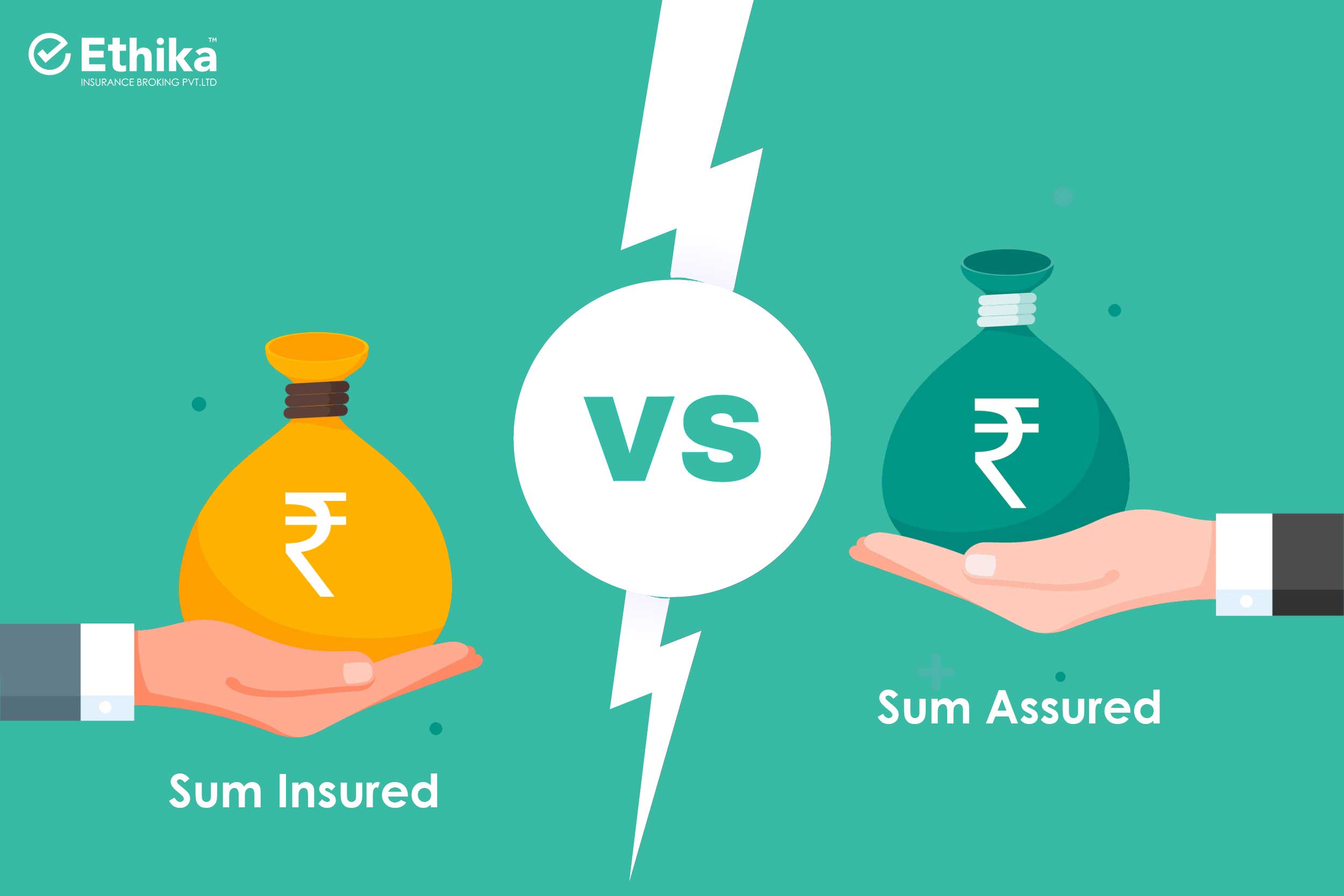
Before you choose a group health insurance for your company, it is important to research the difference between insurance policies. Insurance policy documents contain several technical terms that a policyholder needs to understand.
Two commonly used terms are “sum insured” and “sum assured”. Understanding what the two are and the difference between sum insurance and sum assured can help you pick the most suitable policy for your company.
In this article, we’ll cover everything you need to know about sum insured and sum assured.
What’s on this page?
What is Sum Insured?
The sum insured refers to the maximum amount of money that a policyholder can receive under an insurance policy. For example, if you avail of a health insurance policy with a sum insured of Rs. 5 lakhs, and you incur a cost of Rs. 10 lakhs for your medical treatment, the insurance company will reimburse you for Rs. 5 lakhs (subject to the claim being approved by the insurance company).
The sum insured is the main factor that determines the premium charged under a policy. The higher the sum insured, the higher will be the premium under the policy.
The total sum insured depends on the type of policy held by the policyholder as well. The sum insured can be lower for an individual policy while it can be higher for a family-floater policy.
The sum insured of a group insurance policy refers to the maximum amount that a single employee or member can claim under the policy regardless of how many employees are covered under the policy.
What is Sum Assured?
The sum assured may sound like the sum insured, but it is quite different. The sum assured is a fixed amount that is decided between the policyholder and the insurance company. If a covered event under the policy occurs, then the policyholder will receive the entire sum assured.
The sum assured can be used by the policyholder for any purpose whatsoever, and does not depend on the actual costs of the treatment. The sum assured is a more commonly used concept in life insurance and fire insurance, however, it can be used in group health insurance as well.
For example, you can avail of a policy with a sum assured of Rs. 1 lakh in case any of your employees catch the coronavirus. Since the coronavirus is a transmittable disease, its occurrence in any one of your employees can affect the health of others in the office.
Hence, having a sum assured in case of someone catches the coronavirus can help cover business losses as well.
The most important thing to remember is that the sum assured is a “lump sum” benefit and it can be used for any purpose by the insured. You can transfer the amount to your dependents as well.
The amount of the sum assured affects the premium of the policy as well. The higher the sum assured, the higher will be the premium of the policy.
Sum Insured vs. Sum Assured in Group Health Insurance
There are several differences between the sum insured and the sum assured. Understanding these differences can you help you appreciate each of these concepts.
Number of Claims – A sum insured can be used to cover multiple claims. If an insured individual undergoes multiple hospitalizations in a single year, they can make multiple claims under the insurance policy until the sum insured amount is exhausted.
However, the sum assured can only be used once during the term of the policy (until the policy is renewed). If the insured event occurs, then the entire sum assured is disbursed by the insurance company in a single tranche (assuming that the insurance claim is approved by the insurance company).
Purpose – A sum insured can only be used to recover the actual costs of an event. If you have a sum insured of Rs. 5 lakhs but you only incurred Rs. 1 lakhs as expenses for medical treatment, you can only recover Rs. 1 lakhs from the insurance company. Hence, the sum insured works as an indemnity in case the insured event occurs.
A sum assured is a fixed amount that you will receive in case the insured event occurs. Regardless of the actual expenses that you faced because of the event, you will receive the same amount of money from the insurance company. This money can be used by you for any purpose.
Wrapping Up
Both the sum insured and sum assured to have their own pros and cons under group health insurance. A policy can have both sums insured as well as sums assured.
Insurance policies have several nuances and understanding these nuances will help you pick the right insurance policy for your needs. Always read the policy document carefully before picking an insurance policy. This ensures that there are no surprises later.